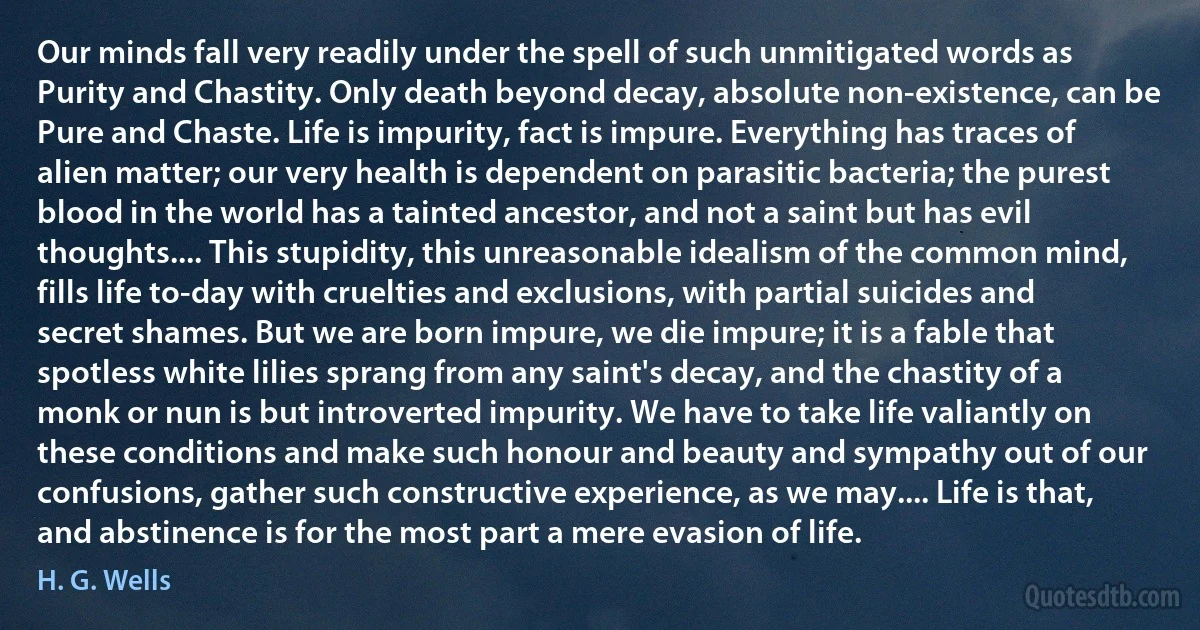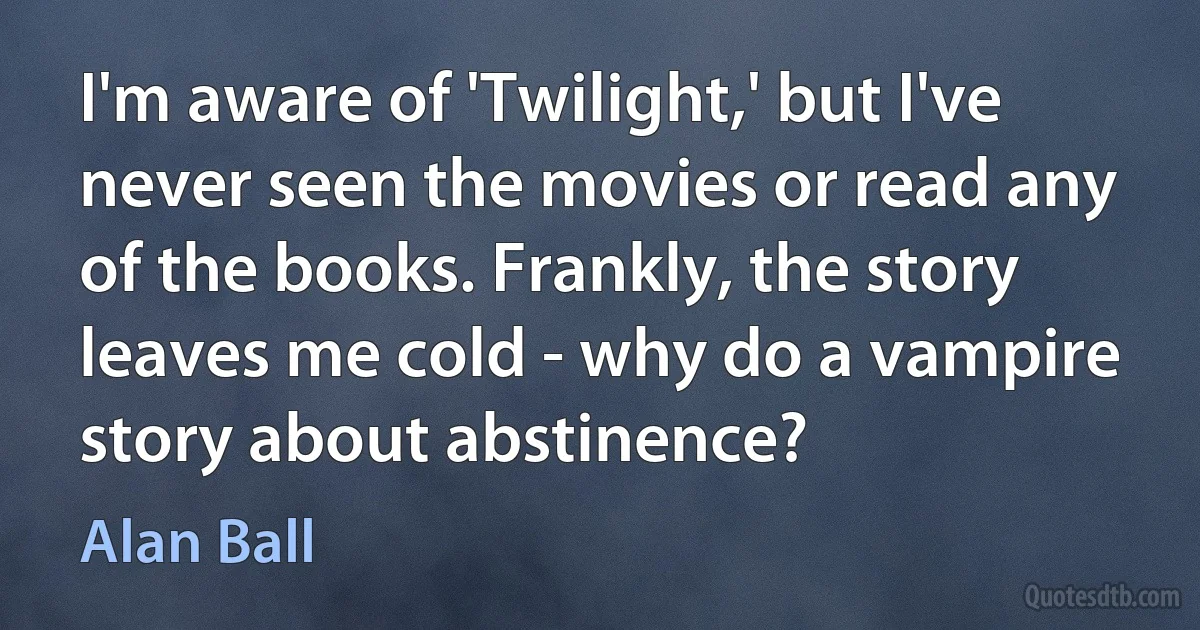Abstinence Quotes - page 2
Xenocrates the philosopher writes that at Athens out of all the laws of Triptolemus only three precepts remain in the temple of Ceres: respect to parents, reverence for the gods, and abstinence from flesh. Orpheus in his song utterly denounces the eating of flesh. I might speak of the frugality of Pythagoras, Socrates, and Antisthenes to our confusion: but it would be tedious, and would require a work to itself. At all events this is the Antisthenes who, after teaching rhetoric with renown, on hearing Socrates, is related to have said to his disciples, «Go, and seek a master, for I have now found one.» He immediately, sold what he had, divided the proceeds among the people, and kept nothing for himself but a small cloak. ... His most famous follower was the great Diogenes, who was mightier than King Alexander in that he conquered human nature.

Jerome
I have heard that, with some persons, temperance – that is, moderation – is almost impossible; and if abstinence be an evil (which some have doubted), no one will deny that excess is a greater. Some parents have entirely prohibited their children from tasting intoxicating liquors; but a parent's authority cannot last for ever; children are naturally prone to hanker after forbidden things; and a child, in such a case, would be likely to have a strong curiosity to taste, and try the effect of what has been so lauded and enjoyed by others, so strictly forbidden to himself – which curiosity would generally be gratified on the first convenient opportunity; and the restraint once broken, serious consequences might ensue.

Anne Brontë
The precise reason why abstinence from animal food will be the first act ... of a moral life is admirably explained in the book, The Ethics of Diet [by Howard Williams]; and not by one man only, but by all mankind in the persons of its best representatives during all the conscious life of humanity. ... the moral progress of humanity - which is the foundation of every other kind of progress - is always slow; but ... the sign of true, not casual, progress is its uninterruptedness and its continual acceleration. And the progress of vegetarianism is of this kind. That progress, is expressed both in the words of the writers cited in the above-mentioned book and in the actual life of mankind, which from many causes is involuntarily passing metre and more from carnivorous habits to vegetable food, and is also deliberately following the same path in a movement which shows evident strength, and which is growing larger and larger - viz., vegetarianism.

Leo Tolstoy
Young man! Deny yourself satisfaction (of amusement, of debauchery, of love, etc.), not with the Stoical intention of complete abstinence, but with the refined Epicurean intention of having in view an ever-growing pleasure. This stinginess with the cash of your vital urge makes you definitely richer through the postponement of pleasure, even if you should, for the most part, renounce the indulgence of it until the end of your life. The awareness of having pleasure under your control is, like everything idealistic, more fruitful and more abundant than everything that satisfies the sense through indulgence because it is thereby simultaneously consumed and consequently lost from the aggregate of totality.

Immanuel Kant
Whether sexual orientation can change or not, hearts can change and turn any sexual orientation into an occasion for the glory of Christ. Those with same-sex attraction glorify Christ through sexual abstinence and through the enrichment of significant Christ-exalting relationships in other ways.

John Piper
The life we lead here is as far from ascetic abstinence as from an enervating comfort; simplicity is the rule here, but a simplicity full of variety, a variety of occupations, of activities, tasks, tendencies, natures; each one is free to organise his life as he pleases, the discipline is reduced to a minimum that is indispensable to organize the existence of 110 to 120 people and to avoid the movements which would be detrimental to the achievement of our yogic aim.

The Mother
If it be granted that the Britons, generally speaking, were expert in hunting, it is still uncertain what animals were obnoxious to the chase; we know however, at least, that the hare was not anciently included; for Cæser tells us, "the Britons did not eat the flesh of hares, notwithstanding the island abounded with them." And this abstinence, he adds, arose from a principle of religion; which principle, no doubt, prevented them from being worried to death: a cruelty reserved for more enlightened ages.

Joseph Strutt
In the desert I had found a freedom unattainable in civilization; a life unhampered by possessions, since everything that was not a necessity was an encumbrance. I had found, too, a comradeship inherent in the circumstances, and the belief that tranquillity was to be found there. I had learnt the satisfaction which comes from hardship and the pleasure which derives from abstinence: the contentment of a full belly; the richness of meat; the taste of clean water; the ecstasy of surrender when the craving for sleep becomes a torment; the warmth of a fire in the chill of dawn.

Wilfred Thesiger



